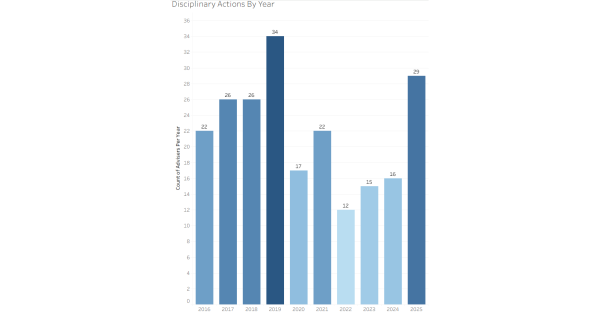How co-ownership may help kids buy a home

Townends Lawyers Estate Planning and Superannuation special counsel, Brian Hor, explains why co-ownership may deliver a workable answer for parents looking to help their kids own a home.
With soaring house prices in all Australian capital cities and many popular regional areas, the “bank of mum and dad” has never been more popular as a way to help your kids get their first step onto the property market ladder, whether to buy their first home to live in or their first real estate investment.
Often this assistance comes in the form of a loan or a gift to help with the deposit. According to the 1,000 plus parents surveyed by Mozo in July 2021, the average amount parents contributed towards property purchases for their children was a cool $134,200. While this data maybe dated, it is probably still an accurate guide to the level of assistance being given by some parents.
Or for parents who don’t have the ability to raise that level of cash, another alternative has been to go guarantor for their child when they apply for a loan from the bank. According to Chris Foster Ramsay, Director of Foster Ramsay Finance, back in September 2021 the average family guarantee varied from $150,000 to $200,000.
However, parents who extend such generosity to their children do so at their own risk. Indeed earlier figures (June 2021) form Digital Finance Analytics’ Principal, Martin North, said that first home buyers who borrow from the “bank of mum and dad” are between three and five times more likely to default on their loans within the first five years.
Further, each of these methods of parental assistance comes with their own particular set of downsides.
Parental loans and gifts
A parental loan to their child will typically be interest free, and often expressed to be repayable on demand (just in case the child gets into any relationship difficulties, so that the parent might be able to call for the money back). Or alternatively the amount is simply given as a gift – or the original loan is simply forgiven after the passage of time, or it may be expressed to be forgiven automatically on the death of the parent.
One major issue is that a loan expressed to be repayable on demand often becomes unenforceable automatically after several years, subject to State / Territory statutes of limitation. In NSW for instance, the limitation period for unsecured personal loans is 6 years. This period starts from the date the debt becomes due – which is day one for a loan repayable on demand.
Also, if the loan is interest free, then the parent is missing out on the opportunity cost of having that cash invested for themselves to earn a return – and may mean a reduced lifestyle for the parent. This is especially true given the 13 rapid rises in interest rates since May 2022, with the Reserve Bank of Australia raising the cash rate to 4.35%, a 12-year high.
This is especially so if the parent is actually relying on government support in their retirement. If that support is means tested, it may be that the interest free loan is deemed to be earning a return for Centrelink income test purposes, resulting in reduced government support for the parent.
Even if the parent makes an outright gift to their child, the amount of the gift may be subject to the gifting or deprivation rules and thereby still impact the level of government support received by the parent.
Then when the parent dies, if the amount of the loan has not been repaid, how does it get taken into account in the division of the parent’s estate – especially where the parent has other children who may not have received the same level of support? This can be a particular issue if the parent does not have enough assets in their estate to “balance things up” with their other children by making compensatory gifts to them. Plus, how do you take into account the benefit of the interest that has been forgone on the loan all that time?
Parental guarantees
For parents who do not have the cash to lend or give to their child another popular option has been to go guarantor for the child’s bank borrowing. But there are dangers for the parent. If their child defaults on the loan, the parent may be up for repayment of the full outstanding amount of the loan – plus all accrued interest, fees and late payment penalties.
Often the parent may have to provide security for their guarantee by way of a mortgage over their own family home – meaning that they may even lose their own home due to their child’s default, even if they had paid off their own home loan many years ago. Not to mention, of course, the very serious impact this will have on their estate plan and how to even things up with their other children in their Will if the parent’s own home (often the major asset of their estate) is not available as an estate asset for equalisation purposes.
However, there is another option that may address many of these issues – which is for a parent to become a co-owner of the property with their child.
Parent as a co-owner
Rather than simply gifting or lending a sum of money to their child, the parent becomes a co-owner with their child as a legal “tenant in common”. For example, if the child needs a 20% deposit to buy a house and can borrow the rest, their parent could instead take a 20% interest in the house as a co-owner, with the child (and possibly the child’s spouse or partner) buying the other 80%.
This would mean that the parent is receiving something of tangible value in return for their support. And it is an asset that they can pass down in their Will. They could leave it to their child who is the co-owner (especially if they are living there), and make adjustments in their Will so that their other children receive equalising value from other assets. Or if there are insufficient assets in the estate, the parent could leave their interest in the house to their other children. Alternatively, if their other children are financially independent, the parent’s interest in the house could be left to their grandchildren.
It is also the most transparent type of support a parent can give to their child. At any time the parent or child (or for that matter one of their siblings) can do a title search to check that their parent has an interest in their home, and the proportion or share of that interest. Plus, they can talk to any local real estate agent (or look up any number of real estate websites) to find out exactly what the market value of that interest is at any point in time.
The parent could if they wanted, charge their child a proportionate amount of rent for their use of the parent’s interest in the house. But even if they did not do this, the parent will still be sharing in any capital appreciation in the market value of the house.
It will be very important for the parent and their child (and the child’s spouse or partner) to enter into a co-ownership agreement that deals with issues such as the sharing of income and expenses of the property, and what to do if one party wishes or needs to sell their interest in the house (e.g. due to disagreement, death or divorce). For example, the remaining co-owners may have a first right of refusal to buy out the leaving co-owner at the then market value of the house.
There are other potential downsides to such an arrangement, such as:
- The value of the parent’s interest in the home being counted as an asset for any means tested Centrelink support;
- As an interest in real estate, the value of the parent’s interest is subject to the vagaries of the property market – which can, for instance, complicate how the parent might seek to equalise the inheritances of their other children under their Will;
- Should the parent undergo a financial or personal crisis (such as bankruptcy, or divorce) requiring that the parent’s interest must be sold, this may mean that their child is forced to sell their share as well at a time that is inopportune for them. The child and their own family may have planted roots in their local community, so that it is disruptive for them to have to sell, especially if they are unlikely to be able to re-purchase a new home in the same neighbourhood;
- There may be additional tax implications for the parent in relation to their interest in the property, such as having to pay land tax (in particular there are changes to the NSW land tax principal place of residence exemption applicable from 1 February 2024). Plus it is likely that their interest will attract capital gains tax if the property is later sold for a profit.
Notwithstanding these potential concerns, the option of a parent becoming a real estate co-owner with their child can be a better option where the risks and challenges of making a loan or a gift to their child, or going guarantor for them, are too great.











One must ask if the revelations of the union graft in the Victorian Big Build are true, then what is…
As the ACTU put together this statement whilst on the food and piss in the ISF members paid for MCG…
Does this mean APRA and ASIC staff are no longer welcome at the union fund super boxes at the NRL…
Couldn't care what the ACTU think. Just another diversion. They should be quiet. Ask yourself, if we started super again…
Based on this principle, advisers or super call centres recommending portfolio switches into Balanced Industry super options should be caught…